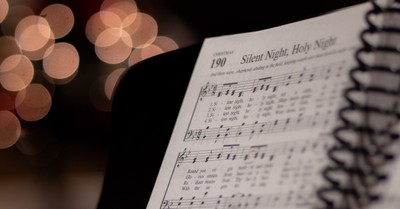In Pursuit of Community: What Can We Do?
- Michael Craven Director, Center for Christ & Culture
- Published Apr 18, 2008

I further stressed that this community, in which diverse people, locally and generally, are united by a common love for Christ and each other, is an essential witness to the in-breaking reign of God. In essence, the nonappearance of this “community” renders our acts of service indistinguishable from any other and our proclamation of Jesus shallow and without basis.
What hinders this community is NOT a weakness of the institutional church and its leadership but rather the radical individualism of its members. This is not simply a matter of concern over sporadic church attendance or mediocre participation in the church potluck dinner; this is a central underlying principle, which nullifies the witness of God’s people and opposes the redemptive mission of God!
Observing the ascendency of radical individualism, Charles Taylor, the acclaimed philosopher and author of Sources of Self pointed out that over the course of the last two centuries “our sources of self-identity have shifted from the external and transcendent to the internal and subjective experience of the individual.” In one sense, as modern societies advanced beyond the necessity of community for shear survival, we gradually and naturally began to transfer our dependency from other people and the local community to technology and ubiquitous governing structures. As our need for other people in order to survive diminished, and as means of transportation and communication evolved; we were less and less bound to our local communities. The bonds of connection and the sense of shared identity were weakened and our reciprocal responsibilities toward others began to evaporate. As an example, for those of you who live in the larger cities; consider how often you see a stranded motorist on the freeway in which hundreds if not thousands of people will pass by without the thought of offering aid. Such a thing would be incomprehensible to those living with this sense of shared identity.
Again, this is not a problem unique to the church in America; it is a fundamental problem within American culture as a whole. For Christians, the problem arises when we fail to recognize the worldly nature of this condition and blindly incorporate it into the church. This would be akin to the church in Corinth trying to assimilate their former pagan practices into their new Christian life and worship. By not subjecting ourselves and the culture from which we spring to biblical scrutiny; we are essentially doing the same thing, which in turn makes us less distinguishable from the world around us. Robert Putnam, Harvard professor and author of the definitive book on the collapse of American community points outs:
This is a stinging indictment of the American church by an outsider, demonstrating that we clearly live in the presence of a watching world – a world that longs for that which only Christ can give, whether they realize it or not. And, one of the things all human beings need and long for is love and acceptance by their fellow human beings. We want to belong and when we do; this is community! This innate longing emanates from our imago Dei and its absence exists because of the Fall. It is for remedy that Christ’s victory and reign serves, and it is His body, the church, in which the firstfruits of this redemptive work should be seen.
I am quick to add that this witness-bearing community is not inwardly focused and separate from the world but rather it represents a distinctly different way of living through which the church serves, and engages the world. In addition to local Christian communities expressed in and through the local church, there is also the larger “community” represented by all followers of Christ from various traditions and denominations, which at present is sadly and deeply divided.
As if the present diminution of community were not bad enough, we as a culture appear to be descending further into an almost hyper-individualistic sense of “community.” An example of this can be found in the phenomenon of social-networking websites such as Facebook and MySpace that have gripped the next generation in particular.
Writing in the Spring 2008 issue of Culture Magazine, Felicia Wu Song, Ph.D. makes the point:
I would add that many Christians likewise view the community of God’s people as merely one of their many “systems of friends, contacts, and acquaintances” from which they can obtain the benefits common to networking. Dr. Song adds that these sites are not a causal force in this condition but merely “reflect and reinforce the basic dispositions toward networked individualism.”
So, let me ask you: If Christians living within a distinct community is an essential witness to the mission of God, and because so many of us seem unwilling to surrender the independent self, and since our present understanding and expression of this community falls painfully short; what can we do to remedy this situation?
Clearly, this problem is enormously complex and deeply embedded in our collective psyche. I don’t claim to know the solution (I have some ideas) but I think we the church, by God’s grace, can through prayer and reflection turn our greatest challenge into what could be the church’s greatest opportunity: the recovery of distinctly Christian community.
So, I am asking you: What practical steps can churches and individuals take to foster and promote a healthy, distinctively biblical, and witness-bearing community? Share your ideas HERE.
Please Click
Here to view Michael's Crosswalk.com blog
Here to give Michael feedback on this article
Here to request e-mail delivery of Michael's weekly commentary
Here to subscribe to Michael's free podcast
Michael lives in the Dallas area with his wife Carol and their three children.
© 2008 S. Michael Craven

.jpg)


















